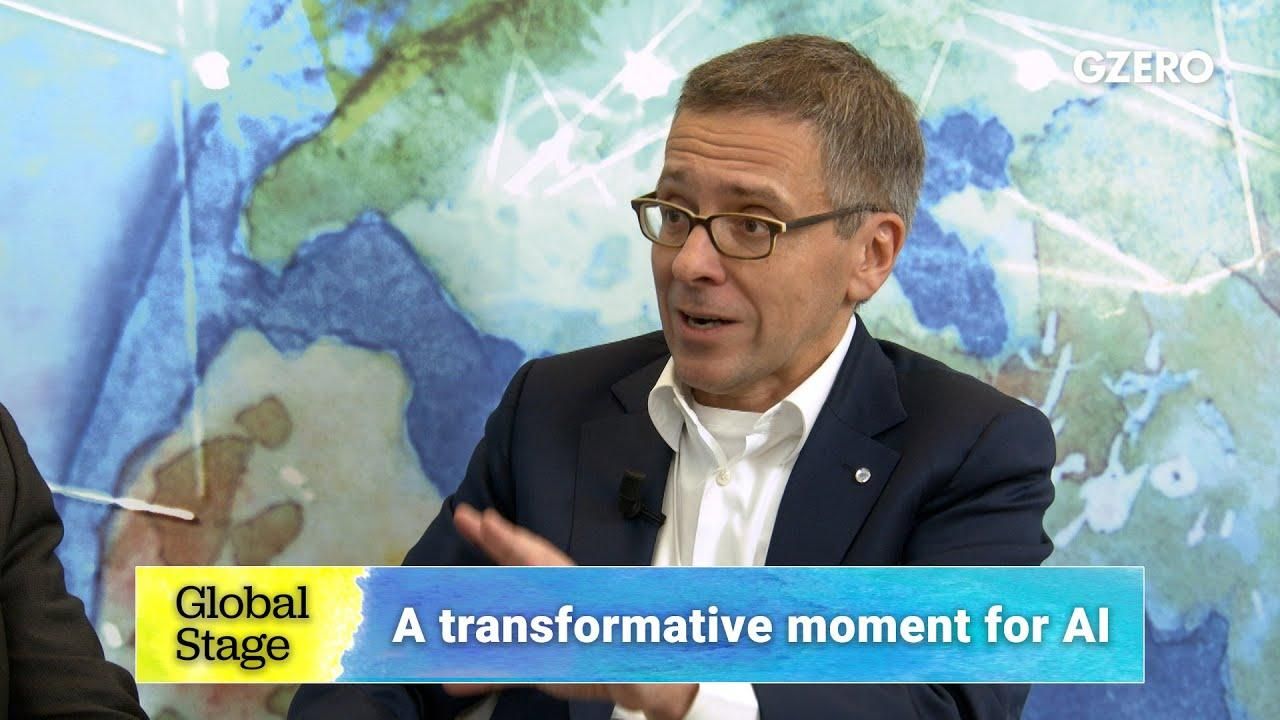Global Stage
Ian Bremmer: the risk of AI and empowered rogue actors

Ian Bremmer: the Risk of AI & Empowered Rogue Actors | Global Stage | GZERO Media

For years, the conversation at the World Economic Forum in Davos, Switzerland, has mostly put artificial intelligence on the back burner. Not anymore.
We're now in a "transformative" moment for AI in terms of how the tech can disrupt the world in both good and bad ways, Eurasia Group President Ian Bremmer says in a Global Stage livestream conversation hosted by GZERO in partnership with Microsoft.
AI, he explains, can boost productivity for economic growth. But it can also be very dangerous when managed by rogue actors, which are more powerful now than they've ever been before.
Indeed, for Ian, AI tools "can become weapons in the wrong hands."
Watch the full Global Stage conversation: AI at the tipping point: danger to information, promise for creativity
Somewhere in the Donbas region, Ukrainian soldier Artem Bondarenko says he hasn’t slept through the night in months as he defends Eastern Ukraine.
In this Quick Take, Ian Bremmer warns that US military strikes on Iran are “looking increasingly imminent” as diplomacy appears to stall.